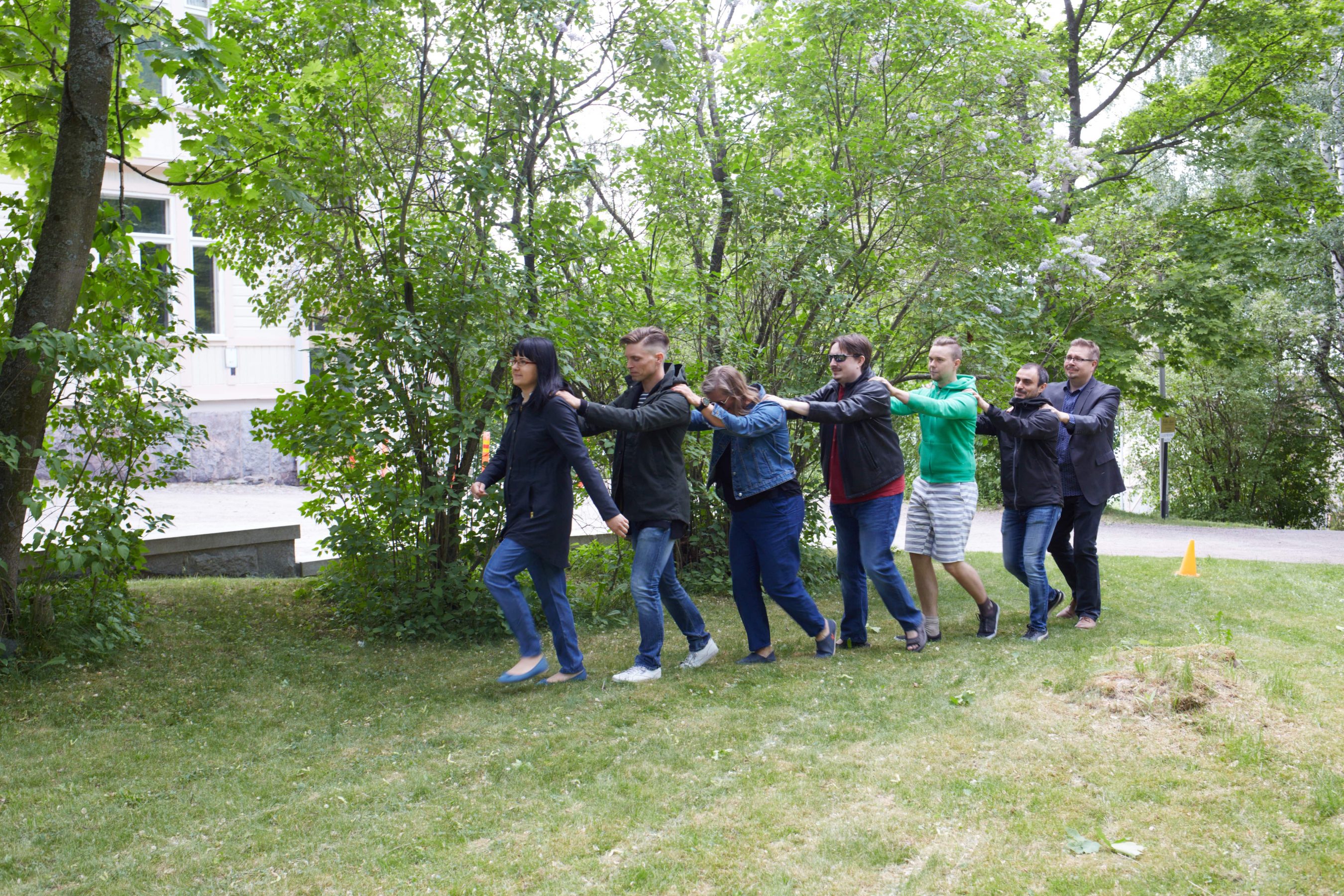Sharing is caring also in leadership
As one of the Great Place to Work companies, we were privileged to host a GPTW after work event at our office. The theme for the evening, Care in Organisations, was in the minds of tens of HR professionals. At the event, I talked about care in leadership, and why it’s a crucial part of my work as a competence manager. I’d like to share some of my thoughts and ideas that guide my work as a supervisor.
Watching employees’ back without standing behind their back
We at Exove believe that a leading model that emphasises care drives success and employee commitment. Care is also one of our core values. But what does it actually mean in practice?
For me, the fact is actually that half of my subordinates work in different offices than I, and the rest are on the other side of the office or at the client’s premises some of the time. This means I do not meet most of them face-to-face daily, weekly, or even monthly.
Still, I am able to guide them in their work. This is because none of us competence managers have a managerial role over employees’ daily work. As we work mainly with client projects, that part of management lies with the projects, either in project manager’s or technical lead’s responsibility. So I don’t want to, nor I am I able to be the manager who stands behind employee’s back and watches every step they make. My role is more to lead the employees, and much less to manage.
What care means to us
All employees have their own needs and wishes for their career and their daily work. As a employer we need to fulfil these needs with sufficient support to keep the employees motivated and happy. With the big demand on competent developers, they will for sure find another workplace to fill their needs.
People have a need to feel accepted and capable, meaning professionally competent. This is very important in order for the people to be open for new things and not close up. In this the supervisor’s role is very important. Otherwise the employee probably won’t get enough encouraging feedback. When employees feel loved, they feel better, and then also the organisation is doing good. This is what caring is about.
Giving the opportunity to share concerns
I meet my subordinates face-to-face or via video call once a month to ask how they are doing. Of course, we can meet more often if needed, but once a month is a minimum. This gives the opportunity to share any concerns at work, but also any matters in life outside work. I never limit the discussions to work-related topics only. Since we are all humans, you cannot separate the work-self and freetime-self. Your life outside work affects your work life and vice versa.
I also like to take walking meetings – to help let go of the working tasks for a while and to facilitate fruitful discussions and focus on that only.
Meeting people also gives me the opportunity to notice if things are not good. I prefer talking about matters – including the uncomfortable ones – early rather than late, before things get serious. I don’t believe in a ticketing system where you order HR services as per need basis. People probably won’t notice being worn out early enough, but when I meet them regularly, the chances to see if something is wrong are bigger. I stick to regular meetings: if there is nothing to talk about, we talk it through that there’s nothing to talk about. Still there is the chance to bring out any concerns.
Guiding, not selling
People are different, that is certain. You also have to recognise the limit how far you can push someone. That is why I rarely say “you must do this”, but rather offer opportunities, guide with questions, observation, interpretations and say them out loud – catching the signals coming back from the employee. It’s better to strengthen something a person already has than try to sell something completely new.
When I ask “how are you”, I really mean “how are things in your life”
I used to work as a supervisor on summer camps where weeks in the summer consisted of working more or less round the clock every day, with some 2 weekly days off. Asking “how are you” had quite a different meaning there, especially if it was the 6th summer camp week in a row for that person. The meaning was “how are you today, have you had enough rest, are you sure you can make it this week”. We were living and working sort of one day at a time.
Here at Exove my “how are you” often leads to discussions in how the employees’ work could be made more interesting and motivating, or what kinds of career wishes do they have within a year or so.
But even if the theme of the question is different in these two different supervisor roles, how I meet the employees is in fact quite similar. Of course individual personalities affect greatly on how I approach different employees.
This is why I keep in mind that all supervisor-subordinate relationships are actually just human-to-human relationships. Leading people is actually as simple as that.



